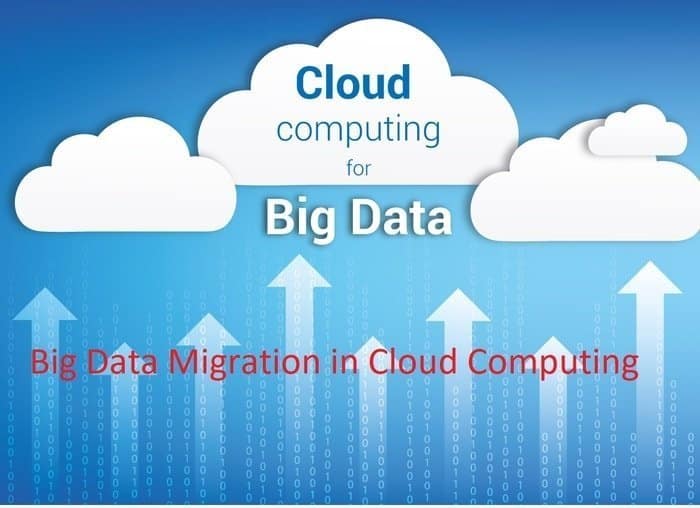The concept of big data is a recent one. Big data works with cloud computing. Big data migration is converting data from the traditional database to the cloud database. An existing business has emerging opportunities.
As a result, there is a scope of emerging data. But their traditional database is not capable of handling a large volume of data. Moreover, it is not possible to work from various places with an existing traditional database.
On the other hand, if a disaster arises, there needs a backup. Because of all the issues, the concept of big data becomes so crucial. Moreover, it requires standard redundant storage to store all valuable big data. Since then, the concept of Big Data Migration in Cloud Computing becomes popular.
What is Big Data?
Big data means a large volume of data. It can be structured and unstructured based on the requirement. The volume of data increases from day to day working basis. Generally, the term big data is a phrase.
It deals with a large volume of data. The data is complex and difficult to handle on the traditional database. Since cloud computing comes forward to migrate the data. In the real scenario, the data of most enterprise data is too bigger to process on the existing database.
As a result, they need to use the cloud database. According to some data experts, these data sets are so voluminous that it is difficult to handle without special software. Big data include search, sharing, transfer, visualization, querying, updating, capturing, data storage, data analysis, information privacy, and data source.
The Big Data Migration
 Big Data Migration means converting the existing big volume of data to any other relevant and secured storage. The concept of big data migration is transferring data to the cloud database.
Big Data Migration means converting the existing big volume of data to any other relevant and secured storage. The concept of big data migration is transferring data to the cloud database.
Cloud uses several algorithms to transfer data to the cloud. Moreover, converting big data involve Extract-Transform-Load (ETL) process. The challenge rate is higher to migrate big data. Now we will discuss the ways to handle common mistakes of Big Data Migration.
1. Ignoring Data Governance
The process of converting big data is quite difficult. It may be overwhelming because the organization spends maximum time and effort. Because of it, business misses out on more critical aspects. On the other hand, the ownership of data is a vital question. The data governance policy has to review.
2. Not Cleansing Data
Cleansing data means moving out of the garbage of data. It is a new system. There is much garbage inside the data because of day-to-day operations. If the garbage data is stored in the cloud database, it will incur extra costs.
3. Loads are Not Tested
Since the concept of big data migration is new so there may be a lot of mistakes. For this reason, we recommend testing the load before migration. You can go step by step. IT team of your organization is responsible for migrating the data.
4. Not to Leave It to Expert
Big data migration is not like your traditional database. Cloud storage is not like your in-house storage. So give the responsibilities to cloud service providers. Your employee may vanish all of your data and money. So contract with a good cloud service provider.
5. Think Data Migration is an IT-only Project
The IT team may be responsible for migrating data. But the ultimate owner is the business user. It is important to understand the requirement of the business. Compare the price of a different cloud storage provider and take the final decision.
Cloud Computing and Big Data
Cloud computing is the redundant storage of data in different locations. The purpose of cloud computing is anywhere and anytime availability of data. Big data is interrelated with cloud computing.
Without cloud computing, big data is incomplete. Business leaders search for the best big data cloud service solution provider to migrate big data because it is meaningless to handle the data without a redundant and real-time server.
Some Platform for Big Data Migration
There is a lot of platforms to migrate big data to the cloud. They are widely known as a cloud service provider. Some big data migration platform is:
1. Google Cloud
 The Google cloud offers access to data storage, analysis, and processing of data. It is a cost-effective solution for the business. When the volume of data increases, then Google offers to increase the storage capacity. They extend their hands to avoid complex on-premise traditional databases. Google cloud has a pay-as-you-go manner.
The Google cloud offers access to data storage, analysis, and processing of data. It is a cost-effective solution for the business. When the volume of data increases, then Google offers to increase the storage capacity. They extend their hands to avoid complex on-premise traditional databases. Google cloud has a pay-as-you-go manner.
2. XenonStack
XenonStack provides big data migration services. They are data migration consultants. They assess the big data and suggest a solution for their client. XenonStack also provides a big data migration infrastructure to optimize data at a higher level. Big Data Integration Solutions, Data Lake & Data Warehouse, and Big Data Governance and Management are popular.
3. Auriga
Auriga is Elite Software R&D Services Since 1990. They provide Business intelligence, Big Data, and smart analytics software. Auriga follows fact-based management and data-driven decision-making. They support healthcare specialists to find appropriate and actionable insights from loads of patient data. In this way, they avoid preventable diseases.
Challenges to Big Data Migration
Big data is the handle of the terabyte of data. It isn’t easy to deal with such a volume of data. So challenges are common to migrate the data. So some major challenges of big data migration are:
1. Internet Speed
The Internet is a must for big-volume data migration. High-speed internet will give you extra advantages. A dedicated speed needs to get an appropriate benefit. Otherwise, it won’t be significant.
2. Security
Security is a major concern for the organization. Some cloud service provider offers different service models. So the cloud service provider caters to several options. Cloud Antivirus is one of them. The other threats are ransomware, Cloud Abuse, Phishing attacks, and Denial of Service attacks.
3. Backdated People
Backdated employ or owners may not understand the importance of big data migration. Big data is the asset of a company. If the organization does not go for big volume data, it may hamper. To convince the uneducated owner is another challenge.
4. Pricing
Most of the cloud service providers charge quite high charges. After the cost-benefit analysis, big data migration may not cost-effective for the organization. So it is recommended for the feasibility study of the actual requirement.
5. Contract
Agreement with the vendor is another vital issue. The user got trap under a service level agreement. It isn’t easy to follow different terms and conditions. On the other hand, shifting vendor is almost impossible.
Final Thought of Big Data
So big data is big. A company should not handle the risk of big data. In this case, you must know what you are doing and revert if anything goes wrong. I hope this tutorial will help you understand Big Data and what to consider while going for its migration into the cloud computing system.





